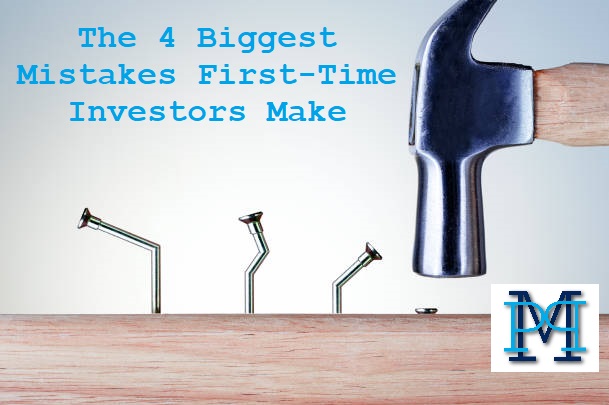Property investing is like any other adventure in life – it brings with it learning curves. The longer you’re in the game, the more you learn and understand based on your experience (and potentially some mistakes you might make along the way).
For first time investors, we have seen some common mistakes that can negatively impact the growth of your portfolio. So take a moment to check out some of the common mistakes first-time property investors make and more importantly – how to avoid them.
1. Repaying all your debt as soon as you can
When you’re early into property investing and you’re trying to build wealth, it can be tempting to decrease your debt as quickly as possible. However, this can not only tighten your cash flow, it can also remove the potential benefits of holding some debts . For example, when you have investment properties, some of your debt is tax-deductible, such as interest payments and the shortfall on negatively geared properties. If you’re looking to reduce your debt, make sure you start with non-tax-deductible debt first.
2. Ignoring or forgetting depreciation
Tax deductions on depreciation – listed in a depreciation report (ask us if you don’t know what this is) can provide you with a significant cash flow boost at tax time, but only if you have everything set up properly in the first place. When you first buy your investment property, get the help of a quantity surveyor who can prepare a deprecation schedule for you. This will help you maximise depreciation deductions at tax time. Every good property manager has a quantity surveyor they can recommend.
3. Leaving rent unchanged
Rental prices can fluctuate quickly, so it’s important you capitalise on these in small increments. If you wait and leave a tenant’s rent price unchanged over a few leases, you may need to increase the rent by over $50 to reflect the current market price, which won’t be received well by your tenants. Instead, consider incremental adjustments of $5 to $20 per week each time the lease is renewed if the market allows. Also – keep in mind that banks often look at your lease, and if your rent is in line with the market, this will help with your borrowing capacity for your next investment. If you have not increased your rent over the past 5 years, you could be doing yourself a disservice.
4. Extended vacancy due to a high rent price
This might seem counter productive – but often advertising your property for the highest possible rent price in the market (you know, the rent price you get if all the stars align and the perfect tenant falls in love with your house despite anything else available in the market) has a negative impact. If you’ve set the rental price on your property too high, you run the risk of your property remaining vacant for weeks, sometimes months. The lost rental income often loses yo more money than you gain. For example, if your desired rent is $450 per week, you’re losing $450 for every week of vacancy. Dropping the price to $430 could attract a tenant quickly and equates to a difference of $1,040 annually, or just under two and a half weeks of vacancy. The maths doesn’t lie. Also – vacant homes attract their own risk so minimal vacancy at a good rental price is always the best balance!
Embarking on your property investing journey can change your life by building a strong foundation for wealth that serves you and future generations. By being aware of these common mistakes when investing early on, you can reach all your goals and create the financial future of your dreams faster (and with less stress). Further, speaking with a reputable property manager for advice on rental prices and other important information can be invaluable (I say property manager and not sales agent because of course, the sales agent you’re potentially buying your investment from is literally paid to get you to pay the highest price for the property they’re trying to sell). So make sure you seek advice where you can, and good luck with your investing future!
Remember, this article does not constitute financial or legal advice. Please consult your professional financial and legal advisors before making any decisions for yourself.

